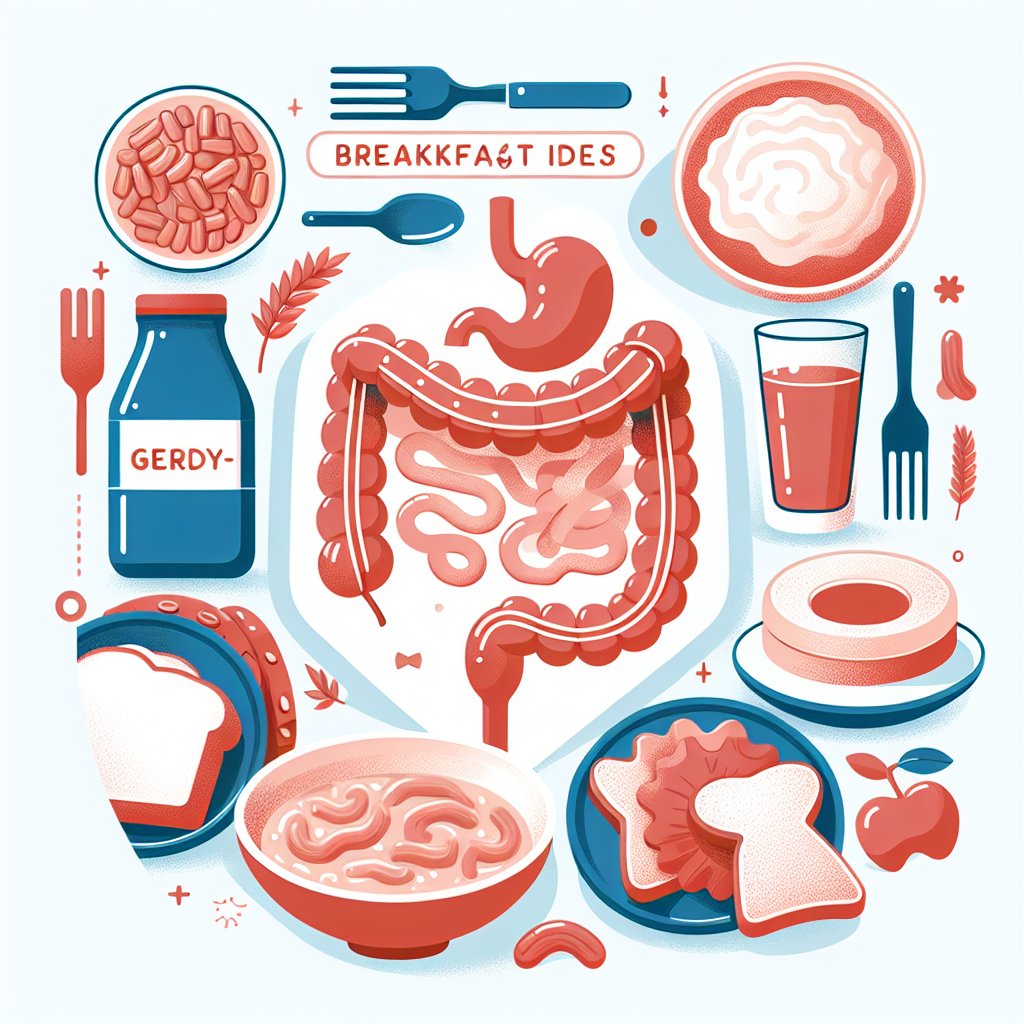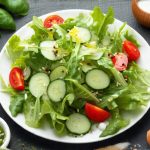Gastroesophageal reflux disease (GERD) can significantly impact your daily life, often starting right from the first meal of the day – breakfast. Many traditional breakfast options are notorious triggers for heartburn and acid reflux due to their high fat content, acidity, or spice levels. However, enjoying a satisfying and nourishing breakfast is possible even with GERD. This article will explore some delicious and practical breakfast ideas that are gentler on your digestive system, helping you start your day comfortably. Understanding what causes flare-ups is also key to making informed choices, so we’ll touch upon common triggers and dietary strategies as well.
Breakfast & GERD: Understanding the Connection
GERD occurs when stomach acid frequently flows back into the esophagus. This happens because the lower esophageal sphincter (LES), a muscular valve that separates the stomach from the esophagus, doesn’t close properly. Several factors can contribute to this, including diet, lifestyle habits, and even anatomical issues. Certain foods are known to relax the LES or increase stomach acid production, exacerbating symptoms like heartburn, regurgitation, chest pain, and difficulty swallowing.
Typical breakfast culprits include coffee (which stimulates acid production), citrus fruits and juices (highly acidic), full-fat dairy products (can relax the LES), fried foods (high in fat and slow to digest), and spicy dishes. It’s important to remember that triggers vary from person to person, so paying attention to your own body’s response is crucial. Keeping a food diary can be incredibly helpful for identifying what specifically causes you discomfort.
GERD-Friendly Breakfast Ideas
A GERD-friendly breakfast focuses on foods that are low in acidity, fat, and spice, while also being easy to digest. Oatmeal is often an excellent starting point. Choose plain oatmeal (steel-cut or rolled oats are best) and avoid adding high-fat toppings like whole milk or excessive butter. Instead, opt for a small amount of lower-fat milk alternatives such as almond or oat milk, along with some berries (strawberries, blueberries, raspberries are generally well-tolerated in moderation), and a sprinkle of cinnamon. Cinnamon isn’t just flavorful; it may also help reduce bloating.
Another great option is eggs prepared in a low-fat way. Scrambled eggs made with a little olive oil or egg whites offer protein without excessive fat. Avoid frying eggs in butter, as this can worsen symptoms. Pair your eggs with whole wheat toast (avoiding heavily seeded varieties) and avocado, which provides healthy fats that are less likely to trigger reflux than saturated fats.
Smoothies can also be customized for GERD sufferers. Blend a base of almond milk or oat milk with banana (a good source of potassium, which can help neutralize stomach acid), spinach (packed with nutrients), and a small amount of protein powder. Avoid citrus fruits in your smoothie, as the acidity can cause issues.
Here are some more specific ideas:
* Whole-wheat toast with almond butter and sliced banana: Provides fiber, healthy fats, and potassium.
* Plain yogurt (Greek or regular) with berries and a drizzle of honey: Choose low-fat or non-fat options.
* Cream of rice cereal with applesauce: A gentle and easily digestible option.
Portion Control & Timing
Even GERD-friendly foods can cause problems if consumed in large quantities. Overeating puts pressure on the LES, increasing the risk of reflux. Focus on smaller, more frequent meals throughout the day rather than one large breakfast. Also, timing matters. Avoid eating within 2-3 hours of bedtime to allow your stomach to empty before lying down. Similarly, waiting at least 30 minutes after waking up before consuming your breakfast can be helpful. This allows time for stomach acid production to normalize slightly.
Foods to Limit or Avoid
While focusing on what to eat is important, knowing what to limit is equally crucial. As mentioned earlier, citrus fruits and juices are common triggers. Similarly, coffee, tea (even decaf), chocolate, peppermint, carbonated beverages, alcohol, tomatoes, spicy foods, fried foods, and high-fat dairy products should be consumed in moderation or avoided altogether if they worsen your symptoms. Remember to personalize your diet based on your individual sensitivities.
Lifestyle Considerations for Breakfast & Beyond
Diet isn’t the only factor influencing GERD. Certain lifestyle choices can also play a significant role. Elevating the head of your bed by 6-8 inches can help prevent stomach acid from flowing back into your esophagus while you sleep. Avoid tight-fitting clothing, as it can put pressure on your abdomen. Maintaining a healthy weight is also beneficial, as excess weight can increase abdominal pressure. Finally, managing stress levels through techniques like yoga or meditation can reduce overall GERD symptoms.
Finding the right breakfast routine when living with GERD requires some experimentation and self-awareness. Don’t be discouraged if you experience setbacks – it’s a process of discovering what works best for you. The goal is to create a sustainable eating pattern that allows you to enjoy a nourishing and comfortable start to your day without triggering unpleasant symptoms. By focusing on gentle, easily digestible foods, practicing portion control, and incorporating healthy lifestyle habits, you can effectively manage your GERD and reclaim breakfast as an enjoyable part of your morning routine.


















